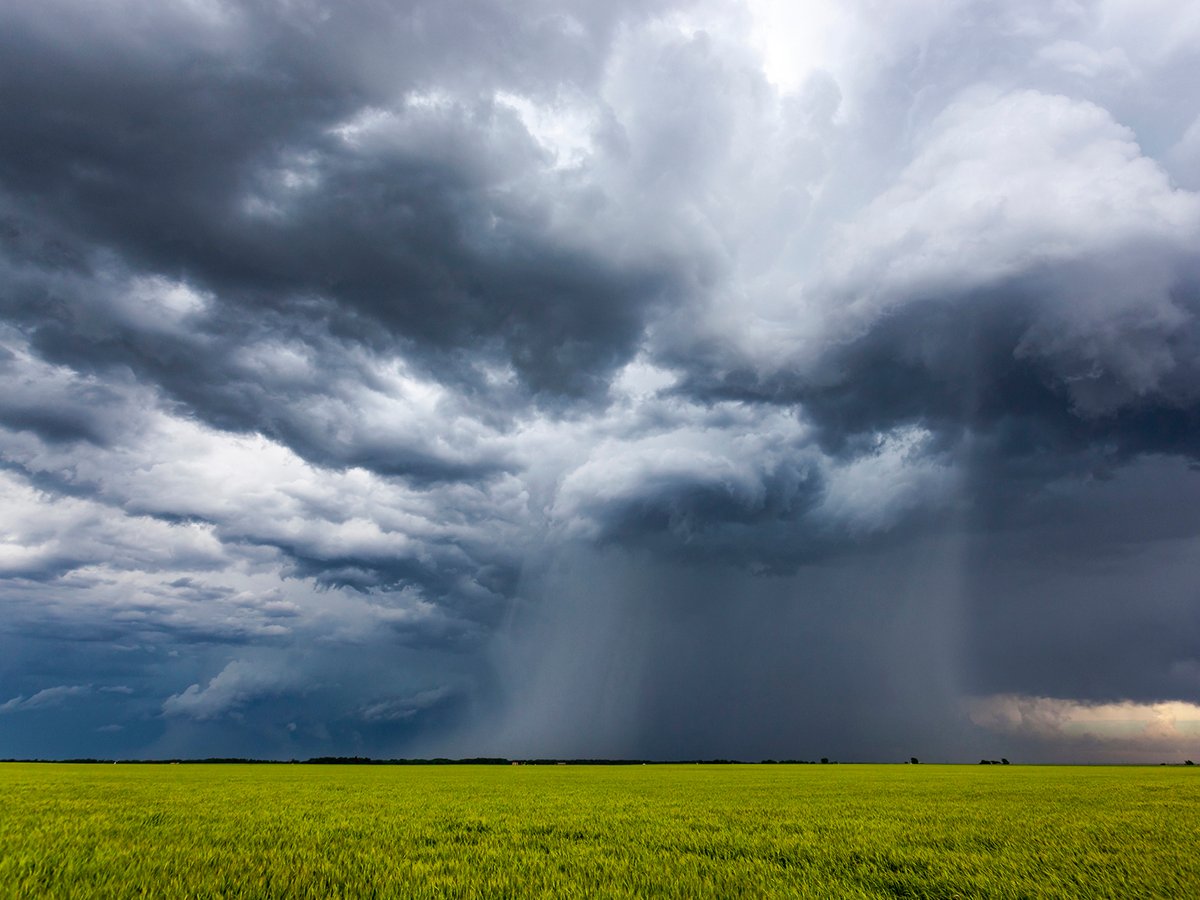Canadians can learn much from North Carolina’s bad experience with
large-scale hog operations, says Rick Dove of the Waterkeeper Alliance.
“Use this example so you don’t repeat our mistakes,” he told a
conference about intensive livestock farms held in Saskatoon Nov. 9.
Dove spent eight years enforcing federal environmental laws along the
state’s Neuse River and documenting problems caused by industrial and
agricultural pollution. He blamed intensive livestock operations, or
ILOs, for an overload of nutrients in the river.
Read Also

Extreme rain increases as planet warms
In this issue, we are going to wrap up our look at extreme rainfall by examining the different weather patterns that tend to be associated with these rainfall events.
The high concentration of ILOs on land with sandy soil and high water
tables on the Neuse River watershed led to excess vegetation growing in
the water and the proliferation of one-celled organisms. These are
blamed for eating chunks out of fish and shutting down a viable
commercial fishery, in addition to causing sores on humans using the
river for recreation.
Besides declining fish stocks, human health conditions related to river
pollution forced many out of commercial fishing.
“Factory farms are the No. 1 source of nutrient pollution in rivers,”
said Dove, citing inadequate waste management systems.
The systems are based on average precipitation levels. When lagoons
fill in heavy rain or through natural disasters like hurricanes, that
waste cannot be contained.
He said North Carolina hogs produce more fecal matter than all the
people in his home state, plus six others including California, New
York, Pennsylvania, Texas, New Hampshire and North Dakota.
Dove said the state does not have sufficient resources to police its
own laws and enforcement often falls to private citizens.
North Carolina now has a moratorium on building new lagoons and
effluent spray fields. There is also an agreement in place to get rid
of the older hog waste systems, but Dove doubts that will ever happen.
He said it is more likely these companies will find it cheaper to
relocate to Canada, where they can continue to operate as before.
ILO operations can be made accountable for their practices, he said.
“As citizens, you need to go after them to enforce the law when your
government fails to do it.”
He said the best way to fight ILOs is by educating people about how
pigs are raised in intensive operations and how their waste is managed.
Consumers can also play a role at the grocery store and restaurant, by
asking where their pork comes from and refusing to buy ILO-raised pork.
“They will vote at the market and elsewhere,” Dove said.














